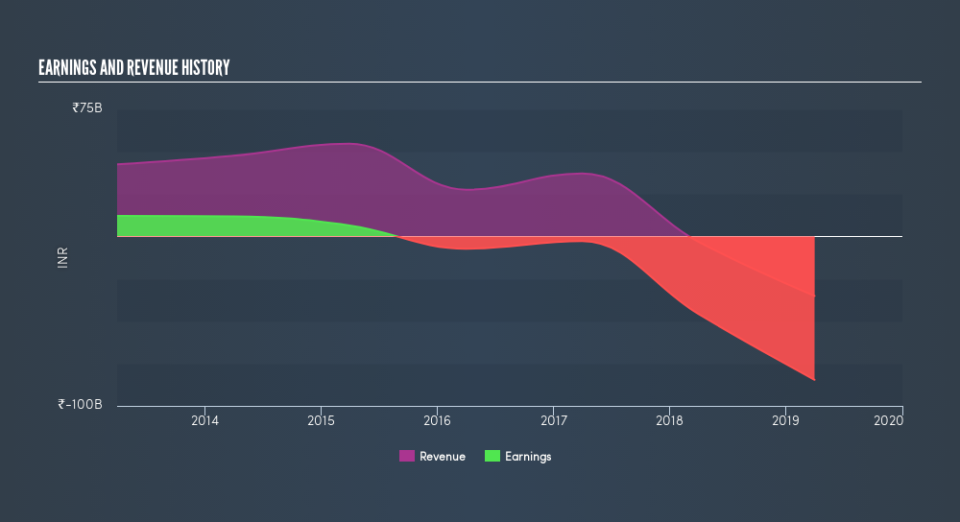Should You Be Concerned About Allahabad Bank's (NSE:ALBK) Historical Volatility?

Want to participate in a short research study? Help shape the future of investing tools and you could win a $250 gift card!
If you're interested in Allahabad Bank (NSE:ALBK), then you might want to consider its beta (a measure of share price volatility) in order to understand how the stock could impact your portfolio. Modern finance theory considers volatility to be a measure of risk, and there are two main types of price volatility. The first category is company specific volatility. This can be dealt with by limiting your exposure to any particular stock. The second sort is caused by the natural volatility of markets, overall. For example, certain macroeconomic events will impact (virtually) all stocks on the market.
Some stocks mimic the volatility of the market quite closely, while others demonstrate muted, exagerrated or uncorrelated price movements. Some investors use beta as a measure of how much a certain stock is impacted by market risk (volatility). While we should keep in mind that Warren Buffett has cautioned that 'Volatility is far from synonymous with risk', beta is still a useful factor to consider. To make good use of it you must first know that the beta of the overall market is one. A stock with a beta greater than one is more sensitive to broader market movements than a stock with a beta of less than one.
See our latest analysis for Allahabad Bank
What we can learn from ALBK's beta value
Zooming in on Allahabad Bank, we see it has a five year beta of 0.85. This is below 1, so historically its share price has been rather independent from the market. This means that -- if history is a guide -- buying the stock would reduce the impact of overall market volatility in many portfolios (depending on the beta of the portfolio, of course). Share price volatility is well worth considering, but most long term investors consider the history of revenue and earnings growth to be more important. Take a look at how Allahabad Bank fares in that regard, below.
How does ALBK's size impact its beta?
Allahabad Bank is a fairly large company. It has a market capitalisation of ₹158b, which means it is probably on the radar of most investors. When a large company like this trades with a low beta value, it is often because there is some other systemic factor influencing the share price. For example, commodity prices might influence a mining company strongly, while expectations around dividend payments (and capital expenditure requirements) might have a big impact on utilities.
What this means for you:
One potential advantage of owning low beta stocks like Allahabad Bank is that your overall portfolio won't be too sensitive to overall market movements. However, this can be a blessing or a curse, depending on what's happening in the broader market. This article aims to educate investors about beta values, but it's well worth looking at important company-specific fundamentals such as Allahabad Bank’s financial health and performance track record. I urge you to continue your research by taking a look at the following:
Financial Health: Are ALBK’s operations financially sustainable? Balance sheets can be hard to analyze, which is why we’ve done it for you. Check out our financial health checks here.
Past Track Record: Has ALBK been consistently performing well irrespective of the ups and downs in the market? Go into more detail in the past performance analysis and take a look at the free visual representations of ALBK's historicals for more clarity.
Other High-Performing Stocks: Are there other stocks that provide better prospects with proven track records? Explore our free list of these great stocks here.
We aim to bring you long-term focused research analysis driven by fundamental data. Note that our analysis may not factor in the latest price-sensitive company announcements or qualitative material.
If you spot an error that warrants correction, please contact the editor at editorial-team@simplywallst.com. This article by Simply Wall St is general in nature. It does not constitute a recommendation to buy or sell any stock, and does not take account of your objectives, or your financial situation. Simply Wall St has no position in the stocks mentioned. Thank you for reading.

